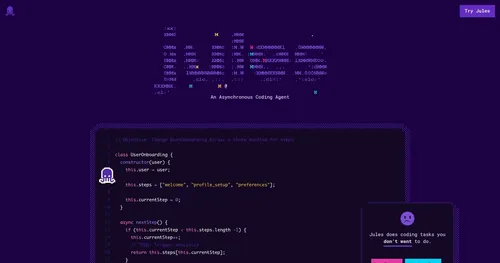OpenHands by Daytona
OpenHands is an open-source AI platform that deploys autonomous agents to perform software development tasks, including code modification, command execution, web browsing, API calls, and snippet retrieval from sources like StackOverflow. Powered by Daytonas infrastructure, it provides secure sandboxes for isolated execution, enabling parallel workflows without risking host systems. The tool supports local deployment via CLI or Docker, with cloud options for scalability.
Key features include an integrated workspace combining shell, browser, editor, and task planner for seamless end-to-end operations. Agents handle natural language instructions, making collaboration accessible across team roles. Daytonas middleware manages shell sessions, feedback loops, and resource allocation, supporting unlimited parallel instances for efficient large-scale task distribution.
For enterprise use, OpenHands adapts to on-premises or cloud setups with HTTPS and SSH security, ensuring compliance and integration with existing tools. It autonomously explores codebases, applies modifications, runs tests, and resolves issues, automating repetitive processes like refactoring and migrations. Benchmarks show strong performance, with CodeAct 2.1 achieving 53% resolution on SWE-Bench using Claude 3.5 models.
Competitors include Devin, a proprietary agent with advanced planning but higher costs and less customization; Aider, a terminal-focused pair programmer excelling in repo-wide edits yet lacking browser capabilities; and Plandex, strong for greenfield projects but weaker on legacy code navigation. OpenHands stands out for its open-source nature and agent-agnostic infrastructure via Daytona, which offers pay-per-use pricing starting with free credits, contrasting subscription models elsewhere.
Users report reduced debugging cycles and faster deployments, though challenges arise with token consumption on complex tasks and initial Docker configurations. Recent updates enhance UI, add task tracking, and improve security in enterprise images. For implementation, install via uvx for quick local runs or integrate with GitHub Actions for automated reviews.
Video Overview ▶️
What are the key features? ⭐
- Parallel Agents: Enables multiple AI instances to process tasks simultaneously, accelerating large projects with dependencies.
- Integrated Workspace: Combines shell, browser, editor, and planner for uninterrupted end-to-end development without tool switches.
- Natural Language Interface: Processes plain English instructions for task assignment and real-time updates, accessible to all team members.
- Secure Sandboxes: Uses Daytonas isolated environments to execute code safely, preventing risks to main systems.
- Autonomous Testing: Navigates codebases independently to test changes, resolve bugs, and automate deployments.
Who is it for? 🤔
Examples of what you can use it for 💭
- Software Engineer: Delegates bug fixes and code reviews to agents, freeing time for architectural decisions.
- DevOps Team: Automates migrations and troubleshooting across parallel environments, speeding CI/CD pipelines.
- Product Manager: Assigns feature prototypes in natural language, tracking progress without coding knowledge.
- Enterprise IT: Runs secure code explorations in isolated sandboxes, ensuring compliance during audits.
- Indie Developer: Refactors legacy repos autonomously, testing changes to launch updates faster.
Pros & Cons ⚖️
- Zero setup launch
- Secure isolation
- Parallel efficiency
- Open source flexible
- Natural language easy
- Token costs high
- Docker setup tricky
FAQs 💬
Related tools ↙️
-
Anima Converts Figma designs into clean, functional React, HTML, Vue, or Tailwind code effortlessly
-
TestSprite Automates software testing with AI-driven test plans, execution, and bug fixes
-
Thunkable Build native mobile apps without coding using a drag-and-drop interface
-
 Graphite
An AI-powered developer platform that enhances code review processes for teams using GitHub
Graphite
An AI-powered developer platform that enhances code review processes for teams using GitHub
-
 Jules
An AI coding assistant that helps developers handle tasks such as fixing bugs and updating code
Jules
An AI coding assistant that helps developers handle tasks such as fixing bugs and updating code
-
Fireworks AI Run and customize open-source AI models with top speed and efficiency

